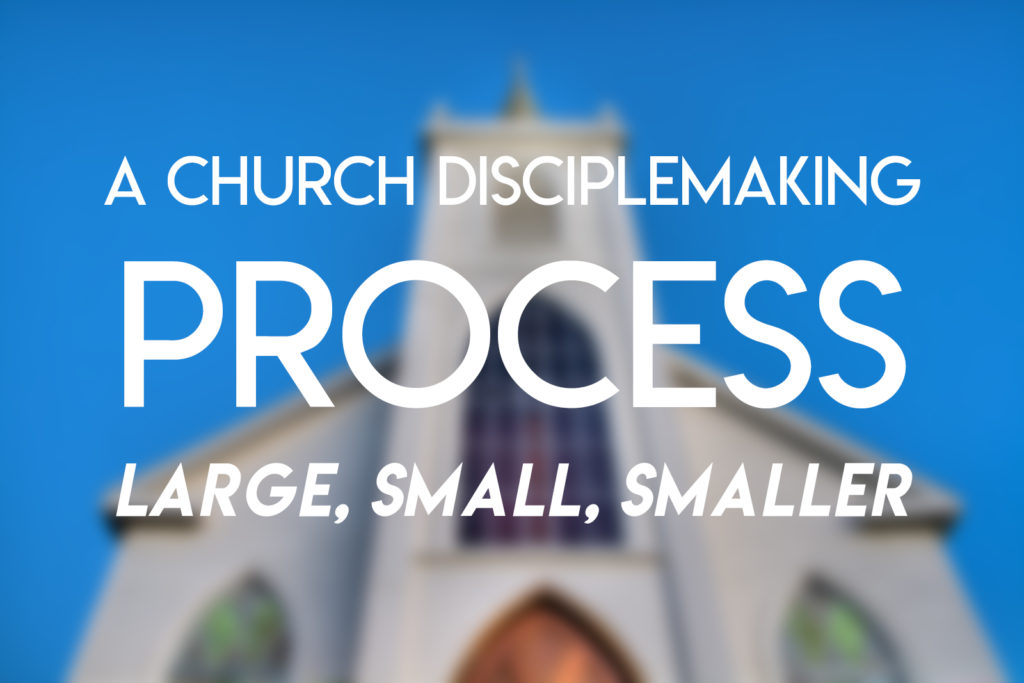
It is inevitable. Pizza gets cold. Popcorn turns stale. Soda gets flat. Even our favorite popular Christian songs of the now will be the songs we skip over on our Spotify playlists tomorrow. Much of the elements we often spend the majority of our time in Student Ministry eventually go the way of cold pizza and flat soda pop. They are temporal in nature and that is not a bad thing. It only becomes a problem if ALL that we do in student ministry is based in the temporal things of ministry. We need to be intentional about investing in things that matter, the eternal things of Student Ministry. One of the most important things we can do for our students is help them make disciples that make disciples.
First, let’s look at what Discipling Students is NOT:
• Discipleship is not an event: We plan amazing weekend discipleship events and gather active students and first time guests together in one place. We set them up in homes with young and motivated student leaders that point them toward life transformation. We call these events Disciple Now Weekends and they are a staple of youth groups across the country. But they are just an entry point to discipleship encounters with students. They can be launching pads for ongoing discipleship journeys, but we fall short if we think that they, alone, will make disciples of our students.
• Discipleship is not a midweek message: We pour hours of preparation into the perfect message, a combination of relatable illustrations, funny stories, video clips and cap it off with sound, verse by verse exposition of scripture that would make any preaching professor proud. While great Bible teaching is certainly needed in our youth groups, that alone will not lead students to ongoing discipleship encounters. As much as we work to put the right words together, it is unlikely that any of the students will remember most of what we share one year from the day you present it.
• Discipleship is not easy: You can’t just add a few hours of time into your schedule to invest in a handful of students and expect to create followers of Christ. Disciple making cannot be compartmentalized like we do with other aspects of our lives. Students are complicated, messy, and a myriad of other adjectives. They are all of these because they are fallen like we are. When we dedicate ourselves to intentional discipleship, we need to be prepared to die to ourselves.
So, if it is NOT all these things, what is Discipleship of Students?
• Discipleship is biblical: We have many passages of scripture that point us to the command to make disciples. Matthew 28:19-20, 2 Timothy 2:2, Romans 10:14-15, and many more. We need to heed the commands in scripture to replicate who we are in Christ with others. Jesus used scripture to teach his followers the ways of his father, God. We need to do likewise.
• Discipleship is relational: It does not call for a program. It calls for a relationship. You must invest in the lives or your students beyond the calendar of activities. Encourage your student leaders to spend time building godly relationships with students in ways that build trust, transparency, and earn the right to speak into the lives of your students.
• Discipleship is who we are, not a part we play: Making disciples is not one of the many tasks that appear on a Student Pastor job description. It becomes part of your DNA. When you are a disciple maker, it becomes part of who you are. Even when you make mistakes, you use those times to mold students into an understanding of God’s grace and how you respond should be a mirror of how Christ would respond in a given situation. Let your life be a reflection of Christ in you.
Jason McNair is State Missionary for Strengthening Churches at Utah Idaho Southern Baptist Convention. He has worked in Student Ministry at churches and ministries in Texas, Utah, Georgia and has served as a national trainer for LifeWay Church Resources in the area of Student Group Ministry.



